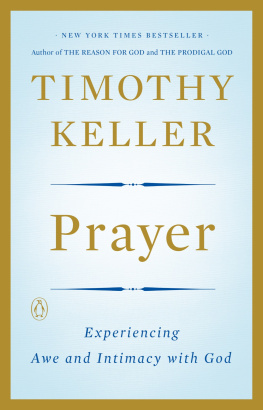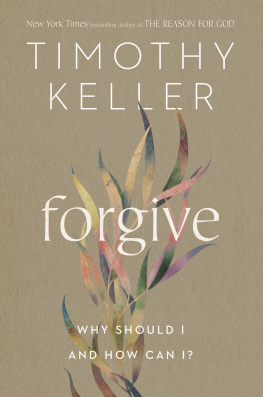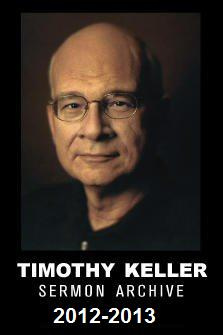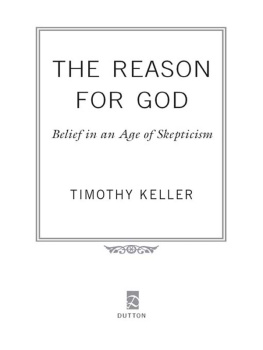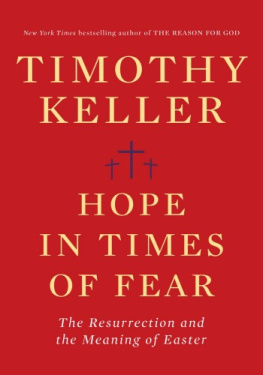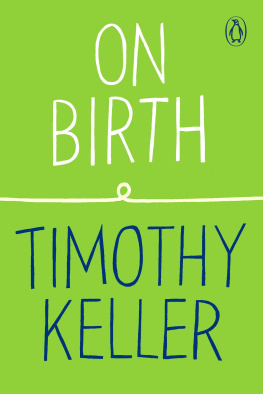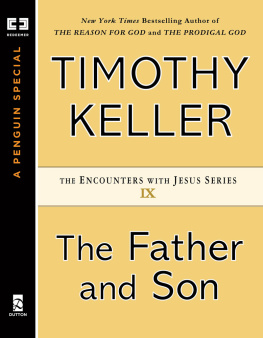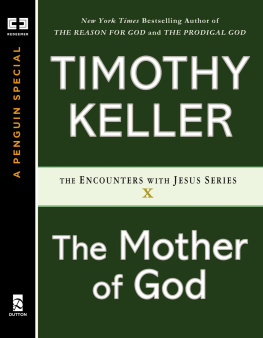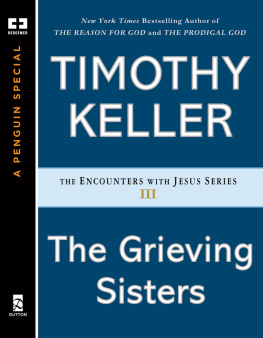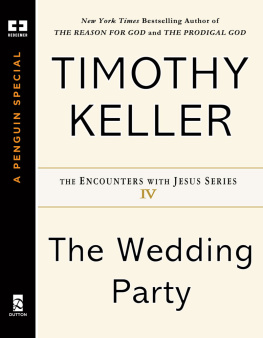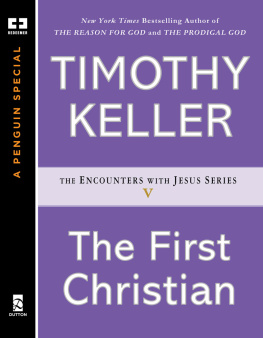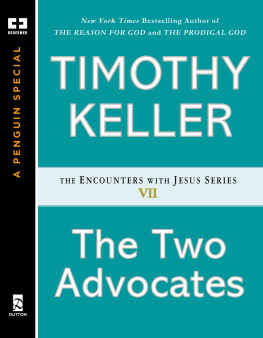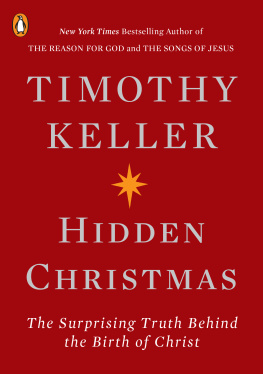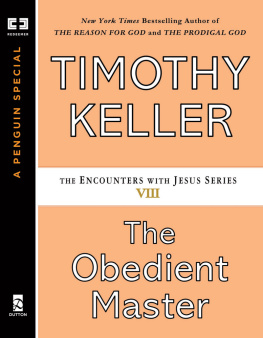Introduction
Why Write a Book on Prayer?
S ome years ago I realized that, as a pastor, I didnt have a first book to give someone who wanted to understand and practice Christian prayer. This doesnt mean there arent great books on prayer. Many older works are immeasurably wiser and more penetrating than anything I could possibly produce. The best material on prayer has been written.
Yet many of these excellent books are written in an archaic idiom inaccessible to most contemporary readers. In addition they tend to be primarily theological or devotional or practical, but seldom do they combine the theological, experiential, and methodological all under one cover. A book on the essentials of prayer should treat all three. Also, nearly all the classic books on prayer spend a fair amount of time warning readers about practices in their day that were spiritually unhelpful or even damaging. Such cautions must be updated for readers living in each generation.
Two Kinds of Prayer?
Recent writers on prayer tend to have one of two views on the subject. Most now emphasize prayer as a means to experience Gods love and He begins with the premise that a sense of the absence of God is the norm for the Christian at prayer, and that the experience of Gods presence is difficult for most people to find.
Another book with the same approach is Donald G. Bloeschs The Struggle of Prayer. He criticizes what he calls Christian mysticism. Prayer is not mainly for an inner state but for conformity to Gods purposes.
What accounts for these two viewswhat we could call communion-centered and kingdom-centered prayer? One explanation is that they reflect peoples actual experience. Some discover that their emotions are unresponsive toward God and that even paying attention in prayer for more than a few minutes is extremely difficult. Others regularly experience a feeling of Gods presence. This accounts at least in part for the different views. However, theological differences also play a role. Bloesch argues that mystical prayer fits more with the Catholic view that Gods grace is infused directly into us through baptism and the Mass rather than with the Protestant belief that we are saved through faith in Gods word of gospel promise.
Which view of prayer is the better one? Is peaceful adoration or assertive supplication the ultimate form of prayer? That question assumes that the answer is completely either-or, which is unlikely.
Communion and Kingdom
For help, we should turn first to the Psalms, the inspired prayer book of the Bible. There we see that both experiences of prayer are well represented. There are Psalms such as Psalm 27, 63, 84, 131, and the long hallelujah of Psalms 146150 that depict adoring communion with God. In Psalm 27:4, David says that there is one primary thing he asks of the Lord in prayerto gaze on the beauty of the Lord. While David did in fact pray for other things, he means at the very least that nothing is better than to know the presence of God. Therefore he says: O God... my soul thirsts for you.... I have seen you in the sanctuary and beheld your power and your glory. Because your love is better than life, I will praise you (Ps 63:13). When he adores God in his presence, he says his soul is satisfied as with the richest of foods (Ps 63:5). This is indeed communion with God.
There are, however, even more Psalms of complaint, of cries for help, and of calls for God to exercise his power in the world. There are also stark expressions of the experience of Gods absence. Here we indeed see prayer as a struggle. Psalms 10, 13, 39, 4243, and 88 are just a very few examples. Psalm 10 begins asking why God stands far off and hides himself in times of trouble. Suddenly the author cries, Arise, Lord! Lift up your hand, O God. Do not forget the helpless (Ps 10:12). Yet then he seems to speak almost to himself as well as to the Lord. But you, O God, do see trouble and grief. You consider it to take it to hand.... You are the helper of the fatherless (Ps 10:14). The prayer ends with the psalmist bowing to Gods timing and wisdom in all matters yet still fiercely calling out for justice on the earth. This is the wrestling match of kingdom-centered prayer. The Psalter, then, affirms both the communion-seeking and kingdom-seeking kinds of prayer.
Besides looking at the actual prayers of the Bible, we should consider also the Scriptures theology of prayerthe reasons in God and in our created nature that human beings are able to pray. We are told that Jesus Christ stands as our mediator so that we, though undeserving in ourselves, can boldly approach Gods throne and cry out for our needs to be met (Heb 4:1416; 7:25). We are also told that God himself dwells within us through the Spirit (Rom 8:911) and helps us to pray (Rom 8:2627) so that even now by faith we may gaze and contemplate the glory of Christ (2 Cor 3:1718). Thus the Bible gives us theological support for both communion-centered and kingdom-centered prayer.
A little reflection will show us that these two kinds of prayer are neither opposites nor even discrete categories. Adoring God is shot through with supplication. To praise God is to pray hallowed be thy name, to ask him to show the world his glory so that all would honor him as God. Yet just as adoration contains supplication, so seeking Gods kingdom must include prayer to know God himself. The Westminster Shorter Catechism tells us that our purpose is to glorify God and enjoy him forever. In this famous sentence we see reflected both kingdom-prayer and communion-prayer. Those two thingsglorifying God and enjoying Goddo not always coincide in this life, but in the end they must be the same thing. We may pray for the coming of Gods kingdom, but if we dont enjoy God supremely with all our being, we are not truly honoring him as Lord.
Finally, when we consult many of the greatest of the older writers
Through Duty to Delight
Where, then, does this leave us? We should not drive a wedge between seeking personal communion with God and seeking the advance of his kingdom in hearts and in the world. And if they are kept together, then communion will not be just wordless mystical awareness on the one hand, and our petitions will not be a way of procuring Gods favor for our many words (Matt 6:7) on the other.
This book will show that prayer is both conversation and encounter with God. These two concepts give us a definition of prayer and a set of tools for deepening our prayer lives. The traditional forms of prayeradoration, confession, thanksgiving, and supplicationare concrete practices as well as profound experiences. We must know the awe of praising his glory, the intimacy of finding his grace, and the struggle of asking his help, all of which can lead us to know the spiritual reality of his presence. Prayer, then, is both awe and intimacy, struggle and reality. These will not happen every time we pray, but each should be a major component of our prayer over the course of our lives.
J. I. Packer and Carolyn Nystroms book on prayer has a subtitle that sums all this up nicely. Prayer is Finding Our Way through Duty to Delight. That is the journey of prayer.
PART ONE


